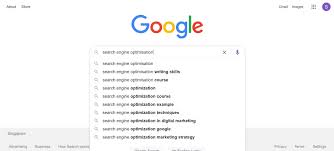Exploring Google SEO Tools
Google offers a range of powerful tools to help website owners improve their search engine optimization (SEO) efforts. These tools provide valuable insights and data that can be used to enhance website performance and visibility in search results.
Google Search Console
Google Search Console is a free tool that allows webmasters to monitor, maintain, and troubleshoot their site’s presence in Google search results. It provides information on how Google crawls and indexes your site, identifies issues that may affect your site’s performance, and offers suggestions for improvement.
Google Analytics
Google Analytics is a comprehensive web analytics tool that helps you track and analyze your website traffic. By understanding how users interact with your site, you can make informed decisions to improve user experience and increase conversions. Integrating Google Analytics with other SEO tools can provide valuable insights into the effectiveness of your SEO strategies.
Google Keyword Planner
Keyword research is essential for effective SEO, and Google Keyword Planner is a useful tool for finding relevant keywords for your website. By entering seed keywords or phrases related to your business, you can discover new keyword ideas, estimate search volumes, and identify competitive metrics to inform your SEO strategy.
Google PageSpeed Insights
Page speed is a crucial ranking factor in Google’s algorithm, and Google PageSpeed Insights helps you assess the performance of your web pages on both desktop and mobile devices. By identifying opportunities to optimize page loading times, you can enhance user experience and potentially improve your search engine rankings.
Conclusion
Google’s suite of SEO tools offers valuable resources for website owners looking to enhance their online presence. By leveraging these tools effectively, you can gain insights into your site’s performance, identify areas for improvement, and implement strategies to boost your search engine rankings. Explore Google’s SEO tools today to take your website’s SEO efforts to the next level!
Maximising Online Visibility: 8 Key Advantages of Google’s SEO Tools
- 1. Free to use
- 2. Comprehensive data
- 3. Integration capabilities
- 4. User-friendly interface
- 5. Regular updates
- 6. Trusted source
- 7. Mobile-friendly features
- 8. Community support
Four Drawbacks of Google SEO Tools: Complexity, Competitor Analysis Limitations, Technical Demands, and Privacy Issues
- Steep learning curve for beginners
- Limited in-depth competitor analysis features
- Some tools may require technical expertise to fully utilise
- Data privacy concerns due to Google’s data collection practices
1. Free to use
One significant advantage of Google SEO tools is their accessibility, as they are typically free for website owners to use. This cost-effective approach enables businesses of all sizes, from small startups to large enterprises, to leverage the power of these tools without incurring additional expenses. By providing valuable SEO insights and data at no cost, Google empowers website owners to improve their online visibility and enhance their search engine rankings without breaking the bank. This accessibility ensures that businesses can benefit from essential SEO tools regardless of their budget constraints, ultimately levelling the playing field in the digital landscape.
2. Comprehensive data
Google’s SEO tools offer a significant advantage through their provision of comprehensive data and insights. By utilising Google’s suite of tools, website owners gain access to a wealth of valuable information that allows them to delve deep into their site’s performance metrics. This detailed data empowers users to make informed decisions, identify areas for improvement, and implement targeted strategies to enhance their website’s visibility and effectiveness in the competitive online landscape.
3. Integration capabilities
One notable advantage of Google SEO tools is their integration capabilities, allowing users to seamlessly connect and collaborate with other platforms and services. This interoperability enhances the overall user experience by streamlining workflows and data sharing across different tools. By integrating Google SEO tools with complementary services, website owners can access a more comprehensive set of features and insights to optimise their SEO strategies effectively. The ability to integrate these tools offers a convenient and efficient way to leverage multiple resources for enhanced performance and results in the dynamic landscape of digital marketing.
4. User-friendly interface
One significant advantage of Google SEO tools is their user-friendly interface. These tools are thoughtfully designed with a focus on enhancing user experience, ensuring that users can navigate them effortlessly and utilise their features effectively. The intuitive layout and clear instructions make it simple for website owners and digital marketers to access valuable insights, analyse data, and implement SEO strategies without encountering unnecessary complexities. This user-centric approach not only saves time but also empowers users to make informed decisions that drive improvements in their website’s search engine performance.
5. Regular updates
One significant advantage of Google’s SEO tools is their regular updates. Google ensures that its SEO tools stay relevant by continuously adapting to changes in search algorithms and industry best practices. By staying up-to-date with the latest updates, website owners can rely on these tools to provide accurate and effective insights into their SEO strategies. This commitment to ongoing improvement allows users to align their SEO efforts with current trends and algorithm changes, ultimately helping them maintain a competitive edge in the ever-evolving digital landscape.
6. Trusted source
Google’s SEO tools stand out as a trusted source in the digital landscape due to Google’s position as the foremost search engine. Webmasters and digital marketers worldwide rely on Google’s SEO tools for their accuracy, reliability, and industry-leading insights. With Google’s unparalleled expertise in search algorithms and user behaviour, its tools provide invaluable guidance for improving website performance and visibility. This trust in Google’s SEO tools underscores their significance in helping businesses navigate the complexities of search engine optimization with confidence and effectiveness.
7. Mobile-friendly features
One significant advantage of Google’s SEO tools is their mobile-friendly features. These tools provide valuable insights tailored specifically for mobile users, enabling website owners to optimize their sites for better performance on mobile devices. By utilising these mobile-specific insights, businesses can enhance the user experience for their mobile audience, improve site responsiveness, and ultimately boost their search engine rankings in the increasingly mobile-driven online landscape.
8. Community support
Google’s commitment to community support sets its SEO tools apart. By offering resources, forums, and comprehensive documentation, Google ensures that users have access to the guidance they need to utilise their SEO tools effectively. This proactive approach not only empowers users to make the most of Google’s tools but also fosters a sense of community among those navigating the world of search engine optimisation. The availability of support resources underscores Google’s dedication to helping users succeed in their SEO endeavours, making it easier for individuals to navigate the complexities of online visibility and achieve their digital goals.
Steep learning curve for beginners
One significant drawback of Google SEO tools is the steep learning curve they present for beginners. Navigating through the various features and functionalities of these tools can be overwhelming for those who are new to search engine optimization. Understanding how to interpret the data provided, implement recommended changes, and track progress effectively requires time and effort. This complexity may deter beginners from fully utilising the potential benefits of Google SEO tools, hindering their ability to optimise their websites for better search engine rankings.
Limited in-depth competitor analysis features
One limitation of Google SEO tools is their restricted capabilities for conducting in-depth competitor analysis. While these tools provide valuable insights into website performance and keyword research, they may lack the advanced features necessary to comprehensively analyse competitors’ strategies and performance metrics. For businesses seeking a deeper understanding of their competitive landscape, additional third-party tools or services may be required to gather more detailed information on competitor tactics and positioning in search engine results.
Some tools may require technical expertise to fully utilise
Some of Google’s SEO tools may present a challenge as they require a certain level of technical expertise to fully utilise. For users without a strong technical background, navigating these tools and interpreting the data they provide can be daunting. This barrier to entry may limit the accessibility and effectiveness of certain Google SEO tools for individuals or businesses who lack the necessary skills or resources to harness their full potential. In such cases, seeking assistance from professionals or investing in training programmes may be necessary to make the most out of these advanced SEO tools offered by Google.
Data privacy concerns due to Google’s data collection practices
One significant drawback of using Google SEO tools is the growing concern over data privacy. Google’s extensive data collection practices raise questions about the security and confidentiality of user information. As website owners rely on Google tools for valuable insights and analytics, there is a risk that sensitive data could be accessed or used in ways that compromise privacy. This con highlights the importance of being cautious and mindful of the potential implications of sharing data with a tech giant like Google, especially in an era where data protection and privacy are increasingly under scrutiny.




